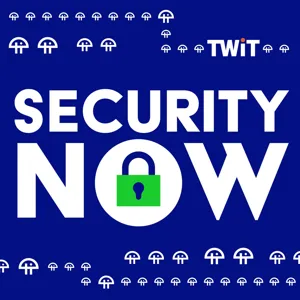with @alive_eth @danboneh @smc90
This week's all-new episode covers the convergence of two important, very top-of-mind trends: AI (artificial intelligence) & blockchains/ crypto. These domains together have major implications for how we all live our lives everyday; so this episode is for anyone just curious about, or already building in the space.
The conversation covers topics ranging from deep fakes, bots, and the need for proof-of-humanity in a world of AI; to big data, large language models like ChatGPT, user control, governance, privacy and security, zero knowledge and zkML; to MEV, media, art, and much more. Our expert guests (in conversation with host Sonal Chokshi) include:
- Dan Boneh, Stanford Professor (and Senior Research Advisor at a16z crypto), a cryptographer who’s been working on blockchains for over a decade and who specializes in cryptography, computer security, and machine learning -- all of which intersect in this episode;
- Ali Yahya, general partner at a16z crypto, who also previously worked at Google -- where he not only worked on a distributed system for a fleet of robots (a sort of "collective reinforcement learning") but also worked on Google Brain, where he was one of the core contributors to the machine learning library TensorFlow built at Google.
The first half of the hallway-style conversation between Ali & Dan (who go back together as student and professor at Stanford) is all about how AI could benefit from crypto, and the second half on how crypto could benefit from AI... the thread throughout is the tension between centralization vs. decentralization. So we also discuss where the intersection of crypto and AI can bring about things that aren't possible by either one of them alone...
pieces referenced in this episode/ related reading:
- The Next Cyber Reasoning System for Cyber Security (2023) by Mohamed Ferrag, Ammar Battah, Norbert Tihanyi, Merouane Debbah, Thierry Lestable, Lucas Cordeiro
- A New Era in Software Security: Towards Self-Healing Software via Large Language Models and Formal Verification (2023) by Yiannis Charalambous, Norbert Tihanyi, Ridhi Jain, Youcheng Sun, Mohamed Ferrag, Lucas Cordeiro
- Fixing Hardware Security Bugs with Large Language Models (2023) by Baleegh Ahmad, Shailja Thakur, Benjamin Tan, Ramesh Karri, Hammond Pearce
- Do Users Write More Insecure Code with AI Assistants? (2022) by Neil Perry, Megha Srivastava, Deepak Kumar, Dan Boneh
- Asleep at the Keyboard? Assessing the Security of GitHub Copilot's Code Contributions (2021) by Hammond Pearce, Baleegh Ahmad, Benjamin Tan, Brendan Dolan-Gavitt, Ramesh Karri
- Voting, Security, and Governance in Blockchains (2019) with Ali Yahya and Phil Daian
As a reminder: none of the following should be taken as investment, legal, business, or tax advice; please see a16z.com/disclosures for more important information -- including to a link to a list of our investments – especially since we are investors in companies mentioned in this episode.
Stay Updated:
Find a16z on Twitter: https://twitter.com/a16z
Find a16z on LinkedIn: https://www.linkedin.com/company/a16z
Subscribe on your favorite podcast app: https://a16z.simplecast.com/
Follow our host: https://twitter.com/stephsmithio
Please note that the content here is for informational purposes only; should NOT be taken as legal, business, tax, or investment advice or be used to evaluate any investment or security; and is not directed at any investors or potential investors in any a16z fund. a16z and its affiliates may maintain investments in the companies discussed. For more details please see a16z.com/disclosures.




